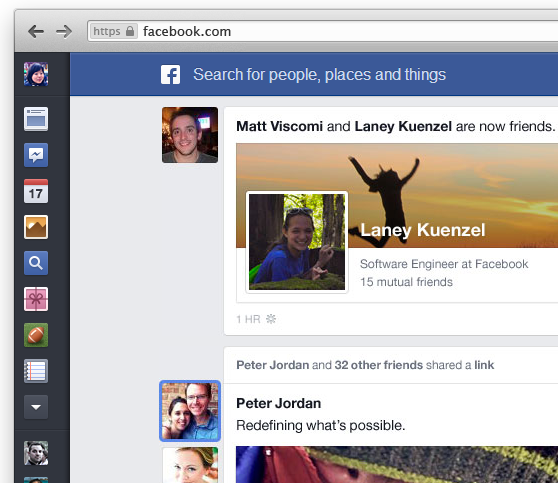Facebook's updated news feed owes as much to Twitter as it does to Google+
 Much has already been written about the new redesign for the Facebook News Feed (and I have purposefully tried to avoid most of it) including the inevitable comparisons to Google+ but that is only natural - Plus is constantly compared to Facebook after all.
Much has already been written about the new redesign for the Facebook News Feed (and I have purposefully tried to avoid most of it) including the inevitable comparisons to Google+ but that is only natural - Plus is constantly compared to Facebook after all.
I have said a number of times about how products and services will gravitate towards the "social norm" because of trends and customer expectations. Facebook says that the new look is following current trends for cleaner apps and a more visually appealing approach so, to call the new News Feed a Google+ clone is too short-sighted.
Conformity
Just as with individuals, products and services are influenced both by competitors and current prevailing themes; when writing about social influence recently I stated:
Normative conformity is compliance with the influence of others so that we may be liked and accepted. There is no guarantee that there will be an attitudinal shift but there will be a behavioural shift to conform with the social norms of the influencing group.
For products and services conformity means adapting to current fashions and the whims of your customers; since the rise of services such as Instagram and Pinterest the fashion has been for an increasingly visual web resulting in images and videos taking priority over the written word.
Competitors constantly influence each other - Google+ recently rolled out new profile pages with larger cover photos, for example, just as Facebook, Twitter and App.Net have all done before.
"Conforming to social norms creates a degree of homogeneity with periods of innovation being short-lived" (Tweetable)
Clean and consistent
Rather than just copy Google+ (a service currently in the ascendancy) Facebook has taken a leaf from Twitter's book in designing a simplified and unified experience. Twitter sought to make the core user experience with its network across all platforms as consistent as possible and Facebook has followed suit whilst realising that a "mobile look" is cleaner than the existing web site.
Despite redesigning both desktop and mobile versions of its service a number of times Google has not yet achieved parity between them with key functionality not being available for smartphones or tablets - the mobile versions also differ between platforms (iOS and Android) and devices (phones or tablets) giving rise to a sometimes frustrating and fractured experience.
Inevitable
In such a competitive sector as social it is inevitable that services will respond to trends and consumer demands in an attempt to maintain a high user base - frequently this means becoming more like a dominant competitor. Conforming to social norms creates a degree of homogeneity with periods of innovation being short-lived.
This time it is Facebook playing catch up, next time it will be Twitter or Google or someone else seeking to be in vogue or meet consumer demands.
